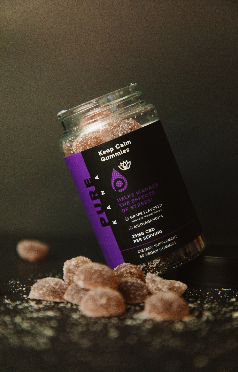People have long dubbed cannabis use for its potential to galvanize a voracious appetite (aka the “munchies”), but this is primarily linked to THC content. THC binds with CB-1 receptors in the brain and central nervous system, and a major part of THC’s chemical impact relates to appetite control.
But what about CBD? Does it affect appetite in the same way? Or more specifically, does CBD make you hungry? Let’s take a closer look.
Does CBD Stimulate Appetite?
Surprisingly, CBD does not appear to directly impact hunger, and it seems the reason for this is in the way that the compound interacts with the endocannabinoid system (ECS). The ECS is a vast network of receptors found throughout the body, but primarily in the nervous, immune, and digestive systems. While both CBD and THC interact with the ECS to exert their effects, they work entirely differently.
THC and Appetite
THC binds to and activates CB1 receptors, found primarily in the brain. Specifically, CB1 receptors are found in a few areas of the brain involving appetite and hunger. One such area is the hypothalamus, which controls important biological functions, like hunger sensations and thirst.
CB1 receptors are also found in the basal ganglia, associated with the internal reward system. Therefore, it may stimulate the pleasure we feel when eating.
CBD doesn’t interact with CB1 receptors in the same ways as THC, which is why it doesn’t get you high and doesn’t cause munchies. The scientific makeup of CBD doesn’t allow it to bind to receptors in the same way THC does. This is significant because it’s the way THC binds to CB1 receptors that seem to stimulate feelings of hunger.
CBD and Appetite
That isn’t to say that CBD doesn’t stimulate appetite at all, though. It could affect your appetite differently, in a more indirect way. For instance, it could improve appetite by minimizing things like nausea.
The primary function of the ECS is to maintain homeostasis. When imbalances occur, and our bodies are “out of whack,” important bodily functions like sleep, mood, and appetite are affected. CBD can help to restore imbalances in the ECS, thereby optimizing wellbeing.
However, everyone’s level of homeostasis is different depending on numerous factors, such as lifestyle, genetics, and stress levels. Therefore, while CBD may cause appetite suppression in some people, it could enhance the appetite of others.
Another thing to consider is that emotional and psychological factors can affect appetite. In the case of emotion-based eating, CBD may enhance or reduce hunger through its ability to regulate stress levels and improve mood. Additionally, CBD may also help with symptoms of depression, a condition that often affects appetite.
What Does Research Say About CBD and Hunger?
Human research on CBD and hunger is limited, so we’re still learning the full scope of CBD’s effects on appetite.
Furthermore, current research is contradictory. Some studies show that CBD increases appetite, while others demonstrate that it suppresses appetite. Similarly, it’s also been linked to both weight gain and weight loss. In one 2015 study in which participants were given CBD, 30% reported a significant increase in appetite.
However, a similar study from 2017 had entirely different results. Twenty-three study participants were given with CBD over three months, and while some had an increase in appetite, others experienced a decrease. A 2018 survey on over 2,000 CBD users was equally perplexing, reporting that 6.35% of participants experienced an increase in appetite as a side effect.
Clearly, a lot more research is necessary to understand the full relationship between CBD and appetite. As of now, it seems the cannabinoid can either increase or decrease hunger depending on several factors. However, these effects are likely indirect, whereby CBD affects appetite by regulating other important functions.
CBD and Digestive Problems
CBD demonstrates a lot of potential for improving digestive health. This is largely due to how the cannabinoid interacts with the ECS. In addition to CB1 receptors, the ECS also contains CB2 receptors, found in abundance in the digestive system. CBD communicates with these receptors to reduce gut discomfort.
One of the key ways it does this is by decreasing inflammation. By preventing the production of interleukins and cytokines, CBD stops the immune system from calling for an inflammatory response. Since inflammation is a key instigator of digestive issues, CBD could benefit those who suffer from such digestive problems. Also, it’s worth pointing out that CBD can helpw ith nausea in some users.
Final Thoughts: Does CBD Affect Hunger?
The effects of CBD aren’t as cut and dry as many might hope. Since we’re all unique, with different genetics and lifestyles, the effects of CBD can vary drastically from person to person. Think of CBD as you would any other vitamin or health supplement – it does not affect us all in the same way. Nonetheless, how it exerts its effects tells us a lot about how it may affect appetite.
Unlike THC, CBD does not seem to directly impact appetite. Instead, by helping the body maintain homeostasis, it may support a regular appetite indirectly. For instance, it may improve appetite in those struggling with certain digestive issues, like nausea or an upset stomach.
If you’re concerned about the effect CBD could have on your appetite, be sure to consult with a doctor before adding it to your health regime.












 https://premiumjane.com/
https://premiumjane.com/
Wonderful website. Lots of useful info here. I am sending it to a few friends of mine and also sharing in delicious. All the products are natural, thanks for your effort!